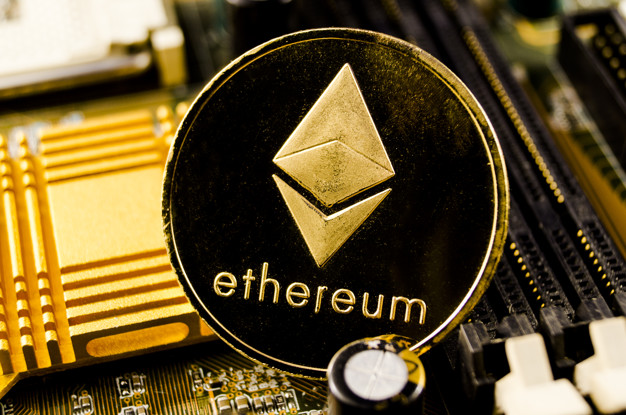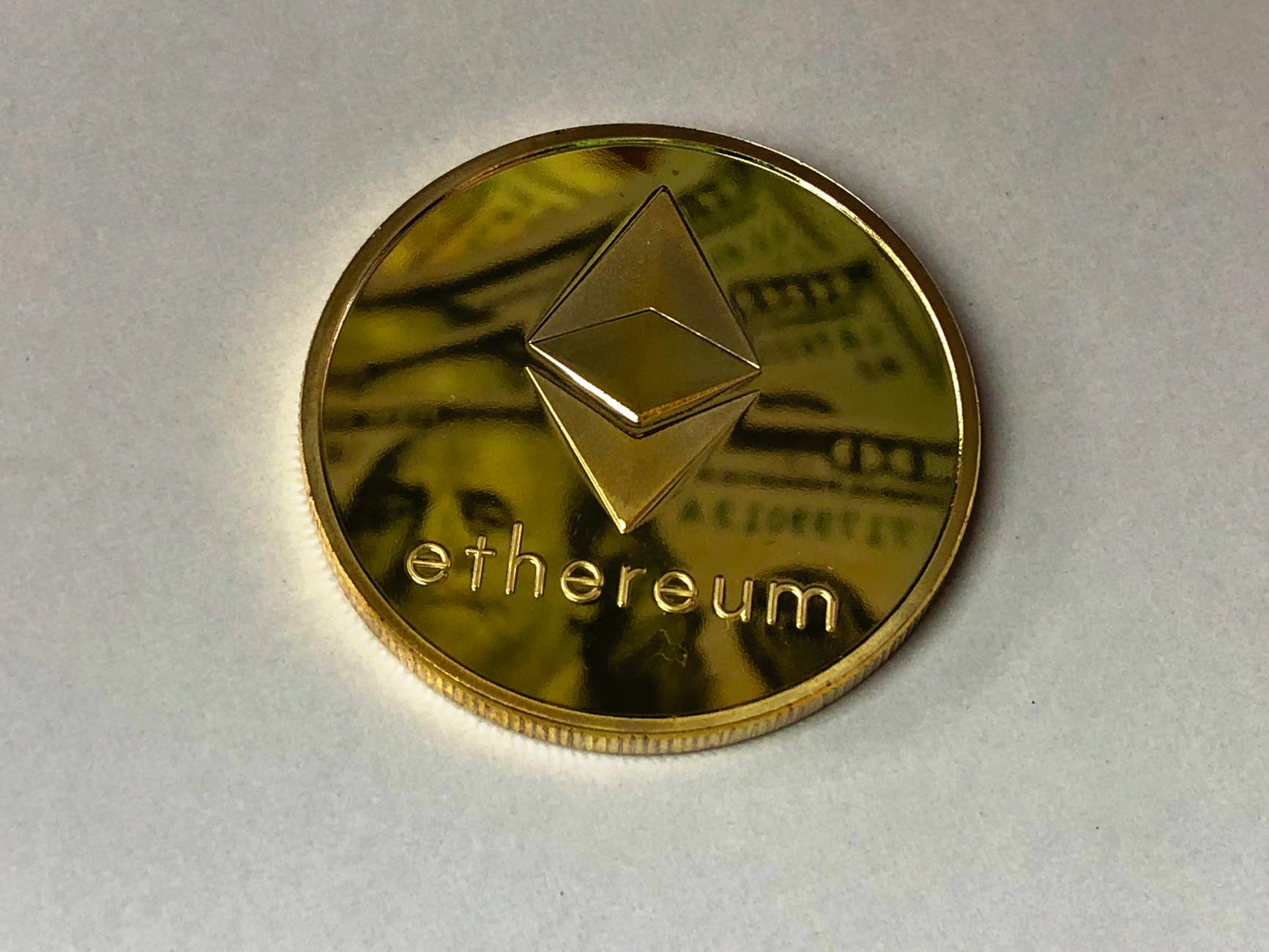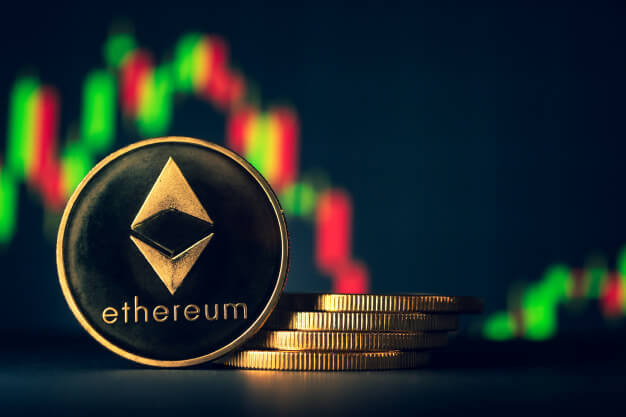
Pros and Cons of Ethereum Network
- What is Ethereum?
- Who Owns The Ethereum Network?
- How Does the Ethereum Blockchain Work?
- Running Smart Contracts makes the Ethereum blockchain special
- What Are the Pros and Cons of Investing in Ethereum?
- What are the Pros of Investing in Ethereum?
- What are the Cons of Investing in Ethereum?
- Should You Invest in Ethereum?
Investing in cryptocurrency is becoming more and more commonplace, and Ethereum currency remains to be the strongest altcoin contender. According to investment moguls, Ethereum’s smart contracts are expected to dwarf Bitcoin, and with the anticipated rollout of Ethereum 2.0, ETH’s prices are poised for an upward climb.
While there are various factors that people often consider before deciding to put their money on certain coins, there are two main reasons why people invest in cryptocurrencies: desire to make a profit, and belief in the technology. So if you want to invest in Ethereum, the first thing is to realize ethereum pros and cons.
Ethereum was built as a blockchain network over which anyone can develop their very own decentralized application. From its inception, it has always been designed as a solution. Ethereum’s prices have reflected people’s belief in the project, making it one of the most promising coins in terms of profit.
In this article, we will be discussing what is Ethereum and its basics before you decide to invest in Ethereum.
Is Ethereum a good addition to your overall cryptocurrency investment strategy?
How does it stack up against Bitcoin? Is it really one of the best crypto to invest in? Does ethereum pros and cons coincide without causing big harm? Read on to find out.
First, let’s start with the tech.
What is Ethereum?
Ethereum is a blockchain-based software platform that is primarily used to support the world's second-largest cryptocurrency, following Bitcoin, in terms of market value. Ethereum, like other cryptocurrencies, may be used to transmit and receive value internationally without the need for a third party to monitor or intervene.
Ethereum is a decentralized public ledger for validating and recording transactions as a blockchain network. Users of the network may build, publish, monetize, and utilize apps on the platform, and they can pay using Ether, the network's cryptocurrency. Ether, or ETH, is an Ethereum-related cryptocurrency.
Insiders refer to the network's decentralized applications as "dapps." To utilize dapps, Ethereum users must pay a charge. The costs are referred to as "gas" since they fluctuate based on the amount of computing power used.
Who Owns The Ethereum Network?
Ethereum is blockchain technology that functions as a global computer for decentralized apps, and it was created by Vitalik Buterin. In 2017, the value of its cryptocurrency, ether, skyrocketed Ethereum's market worth is almost $30 billion.

How Does the Ethereum Blockchain Work?
The Ethereum blockchain is a ledger (just like other blockchains) against which a transaction is validated. “Miners” -- individuals or groups running high-powered computers who validate incoming transactions, and permanently add valid transactions on the ledger as a block in a chain of valid transactions, hence, the blockchain.
Running Smart Contracts makes the Ethereum blockchain special
The Bitcoin blockchain can process simple data. Since it was created to be a digital currency, it’s designed to facilitate financial transactions, nothing else.
Ethereum’s blockchain, on the other hand, contains executable code -- “if-then” statements that contain a set of conditions for transactions. This is why it’s a perfect platform for decentralized applications. ETH is actually the cryptocurrency that powers the transactions in the network.
What Are the Pros and Cons of Investing in Ethereum?
Why would a cryptocurrency enthusiast put money into Ethereum? What are some other pros and cons of investing in Ethereum, as well as some crucial information that potential ETH owners should be aware of? Here's a rundown of everything you need to know before investing in Etheruem in the future.
What are the Pros of Investing in Ethereum?
“Should I invest in Ethereum” is one of the most common questions from our readers. It makes sense since it has always been a strong second to Bitcoin.
In this section and the succeeding one, we will be exploring the pros and cons of investing in Ethereum.
Ethereum Reliability
Aside from a high-profile hack that occurred in 2016 resulting in the birth of Ethereum Classic (or the birth of ETH, depending on who you ask), and the crypto kitties congestion in 2017 caused by well, internet cats, the Ethereum network status has suffered from little to no downtime or lag, making it a great platform to build applications on.
The Ethereum network has also remained free from censorship (more on this later) and sudden 51% attacks that have plagued other currencies.
Ethereum 2.0 Upgrade
Ethereum 2.0 has been in the works for a long time. The upgrade’s goal is to improve the Ethereum network scalability and ease of use. Ethereum will switch from a proof-of-work to a proof-of-stake consensus algorithm.
Mining the currency will no longer require expensive computing rigs with powerful graphics cards; instead of miners, the PoS system has validators who need nothing but a basic computing rig and a 32 ETH balance.
Imagine the Ethereum blockchain broken into 64 shards, each one containing its own set of data. That’s another feature of Eth 2.0 -- validators don’t have to compare transactions against one blockchain, they only need to validate the transactions in their respective shard. This setup is designed to make the entire platform scalable and to make transactions way faster.
It’s a good sign: the Ethereum network is innovating to improve the entire ecosystem for users, developers, and coin holders.
Sponsored by Large Companies
Ethereum boasts an impressive and outspoken set of investors:
-
The Winklevoss Brothers. Founders of Winklevoss Capital and Gemini crypto exchange.
-
Ashton Kutcher. The TV and movie star turned venture capitalist focusing on technology and startups.
-
Mark Cuban. Billionaire entrepreneur; most known for being the owner of Dallas Mavericks and being the main “shark” in the ABC business reality show Shark Tank.
-
Richard Sherman. NFL veteran and investor.
Aside from that, Fortune 500 companies such as IBM, Microsoft, JPMorgan Chase, and Amazon are reportedly accumulating Ethereum as a hedge against a potentially major shift in the current economic system.
Ethereum is Decentralised
Ethereum is powered by thousands of nodes scattered all around the globe. This protects the network from failure, attacks, and malicious connivance. This ensures that the Ethereum platform remains censorship-free and free of control from one single entity.
While the numbers are changing daily, only 28% of Ethereum nodes are concentrated in huge ETH mining operations.
Lower Inflation Risk
In spite of it not being hard-capped as definitively as Bitcoin is, ETH production is capped at 18 million ETH a year. Every year, miners' rewards are also slashed by around 30 - 40%. A recent proposal proposed to slash miners’ rewards by 75%.
These factors, partnered up with the evolution of Defi platforms that allow for staking will take a certain amount of ETH out of circulation, shielding ETH from inflation.
Ether Market Cap status
Even if Ether’s supply is designed to increase, ETH serves a definitive purpose within the Ethereum platform. It will never become obsolete since the demand for the coin (both from investors and developers) will always surpass the supply growth.
A lot of people think that because Ether is uncapped, it has the potential to be worthless in the future. However, as we have discussed in the subtopic before this one, ETH has its own mechanisms to counter inflation.
It Attracts More Businesses
Both retail and institutional investors acknowledge the intrinsic and industrial value of ETH. Unlike Bitcoin, ETH actually serves a basic purpose: paying for transactions within the ETH network.
JPMorgan Chase, Microsoft, Intel, Credit Suisse, and Accenture are some of the names affiliated to the Enterprise Ethereum Alliance, a member-led group committed to the widespread utilization and promotion of the Ethereum blockchain technology.
Billionaire Mark Cuban is one of Ethereum’s most outspoken supporters. He thinks that Ethereum, not Bitcoin, is a true currency. Aside from being the gas running the wide variety of applications built on the Ethereum platform, it’s also quite easy to pay for goods and services using ETH.
First Mover Advantage
Ethereum is second only to Bitcoin itself. While Bitcoin paved the way for digital currencies, Ethereum took it a step further. Smart contracts showed exactly what the blockchain can do, and even until now, Ethereum developers are still finding ways to innovate and improve the platform.
At this point in the history of cryptocurrencies, Ethereum is synonymous with innovation, decentralization, and reliability.
Fast Deployment
Deploying smart contracts on the blockchain is designed to be easy and straightforward, but it does require a degree of knowledge in web development and programming, particularly in Solidity. Considering the fact that any “if-then” scenario can be turned into a smart contract, this makes
Ethereum is an accessible platform for a lot of businesses, enterprises, and innovators across a wide variety of industries.
Ethereum is Transparent
Ethereum has transparency embedded into its code and design -- both Ethereum and the applications built on the platform are open sources. Developers can, at any time, re-use Ethereum’s functionalities in their own projects.
Ethereum is also community-driven, and there’s a whole host of resources available to those looking to join the community.
What are the Cons of Investing in Ethereum?
While the pros of Ethereum make it seem like the perfect cryptocurrency, it’s also important to consider the cons of cryptocurrency if you are to make a truly informed decision.
It Will Always Be Second to Bitcoin
While Ethereum enjoys the first-mover advantage, it will always play the second fiddle to Bitcoin currency. The price difference is still outstanding, and a lot of Bitcoin maximalists don’t even believe that Ethereum and Bitcoin are in the same league.
However, Ethereum’s value as a platform cannot be denied, while Bitcoin is slowly evolving to be a store of value instead of a functioning currency.
Scalability Issues
Scalability is one of the most pressing issues that Ethereum seeks to address through the upgrade. Ethereum is currently processing transactions at a sluggish rate of 15 transactions per second. Considering how big the network is (around 4x as many developers as any other platform), that is proving to be a legitimate hindrance to widespread adoption.
Ethereum 2.0 promises to solve the problem, ushering in a brand new era of 10,000 transactions per second. However, the rollout is proving to be slow, and there’s no definitive end date for when Eth 2.0 goes live.
Eth 2.0 is Causing Community Troubles
The upgrade to Ethereum has sparked discord within the community, particularly on the side of the miners. The upgrade will inevitably render miners’ expensive rigs obsolete, which of course, they really do not like. This has created a riff between the community’s developer site and the miners.
According to the roadmap, the sharding feature is scheduled to be implemented prior to the transition to a proof of stake consensus mechanism, but the developers are talking about prioritizing the latter.
Outrageous Gas Fees
As we have mentioned before, ETH is the currency that runs Eth smart contracts. The outrageous ETH gas fees during peak hours have consistently frustrated developers and traders. During the first quarter of 2020, rising demand drove Ether gas prices to the point where transacting on the platform simply wasn’t viable anymore.
This is another problem that the upgrade is meant to solve. Until then, the outrageous gas fees might prove to be a problem from time to time.
Transaction Privacy
While Ethereum is, by design, private, it’s so easy for cryptocurrency newbies to reveal their identities when transacting on the platform. Transaction data is concealed from the public, but some entities can actually connect wallets to people’s information through their gas price settings, the time when the account is most active and customized Ethereum Name Service (ENS) names.
Some entities are also known to send small, specific amounts of ETH to certain wallets to track it.
Should You Invest in Ethereum?
If you’re one of many who’s asking, “should I buy Ethereum?”, "which are ethereum pros and cons". The answer isn’t that simple. Ethereum is one of the best-performing currencies out there, and not owning ETH would mean that you’ll be missing a chance to make a profit should it continue its upward climb.
The question is whether the upgrade goes smoothly and without a hitch. A lot of people have started to profit off of the Eth they’re holding. The catch? You can’t sell or trade staked Eth, and once it’s staked, it’s there until the entire platform transitions to 2.0.
Conclusion
Ethereum is an established cryptocurrency that has an impressive set of pros and a concerning set of cons. Either way, if you’re looking into diversifying your cryptocurrency portfolio, Ethereum is definitely worth looking into.
Don’t forget to do your due diligence prior to investing in any cryptocurrency.







Leave a Reply
1 comments
Add comment ×